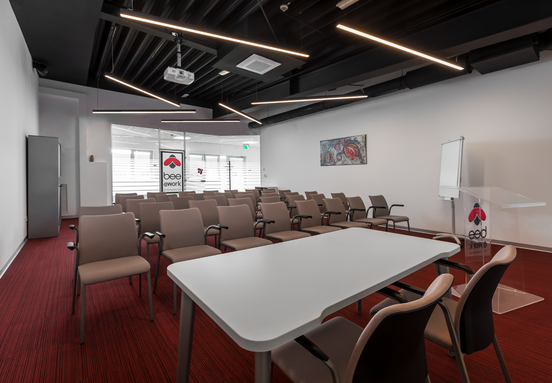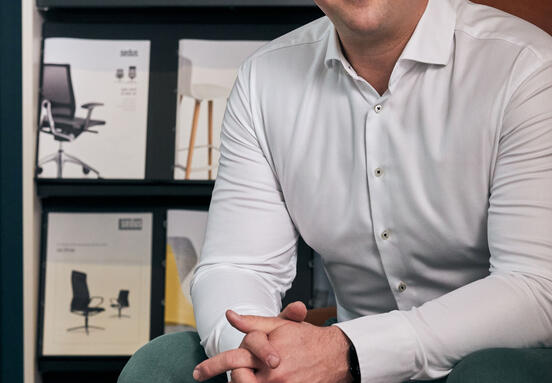Tell us briefly about the Uniqa insurance group, how long have you been represented on the Croatian market?
UNIQA Insurance d.d. it is part of the UNIQA group, one of the leading insurance groups in Austria and Central and Eastern Europe. UNIQA has been operating in Croatia for 21 years and is reinsured within the UNIQA Group and with world-class reinsurers: Axa Corporate Solutions Reinsurance Co, Lloyds, Munich Re, Swiss Re and others. UNIQA offers all types of life and non-life insurance for individuals and legal entities and is committed to the introduction of new technological solutions, improvement of business processes and quality and fast payment of damages. Our business strategy follows the umbrella UNIQA 3.0 strategy of the UNIQA Group, which is manifested by a common goal - to enable customers a safer, longer and better life.
Why is it important to ensure our properties?
It is important to insure the property because of various risks that can cause great material damage that can jeopardize the financial stability of the property owner, whether it is a private person or a business. The recent earthquakes, first in Zagreb and later in Petrinja, Sisak and the surrounding area, pointed to a large disparity between insured and damaged property, which is why the state and local and regional self-government units must bear the heavy burden of rehabilitation. The devastating earthquake has prompted many to think about securing their homes and business premises and has opened up many other issues, such as building insurance that does not cover household insurance but only common parts of the building and earthquake insurance, which is not basic coverage but is contracted as additional coverage.
Natural disasters remind us most strongly that such damage does not only happen to "someone else", and that it is a matter of time before something like this can happen to any of us. Let's just remember the flood in Gunja in 2014, the fire that devastated the suburbs of Split in 2017 or the storm in Zagreb in May 2019. Due to the catastrophic consequences of natural disasters, but also many other risks - from careless disasters to burglary and theft - Property insurance should become the rule, not the exception.
In Croatia, we are making slow progress in terms of awareness about property insurance, as evidenced by the fact that property insurance premiums in the past 10 years recorded only a very slight growth trend, so in 2018 it amounted to 44 euros per capita, which is almost four times was 168 euros per capita in the same year. Last year, it was 48 euros per capita.
What are the basic principles of property insurance? When asked about the basic principles of property, I thought you should tell us something more about the principle of compensation, that is, something more about overinsurance, subinsurance and double insurance.
By concluding a property insurance contract, the risk of possible consequences of harmful events is transferred to the insurer, which enables insurance policyholders to more easily overcome harmful events that very often cannot be predicted or prevented.
When contracting property insurance, one of the basic principles of property insurance is emphasized, and that is the principle of compensation for damage, according to which the compensation from insurance cannot be greater than the actual damage suffered by the insured. For example, if the value of the case is HRK 20,000 and it is insured at HRK 20,000, and the damage is estimated at HRK 19,000, the compensation for damage cannot be higher than the actual damage - HRK 19,000.
Overinsurance means that the amount for which the property is insured is higher than its actual value, while in reinsurance the situation is reversed: the amount of insurance is less than the actual property values. In order to avoid subsequent disputes over damages, it is important that the insured contracts the real value of his property, which can always and should be consulted with an agent who will explain how this value is determined and what to do if during the insurance contract the value of the insured property changes.
Double insurance means that the same subject is insured against the same risks by several insurers. For example, a building is insured against fire by two different insurers. The insured has the right to claim compensation from each insurer, but the total compensation for damage cannot be higher than the estimated damage to the property.
Co-insurance is applied when assets are insured that cannot be insured by a single insurer due to high risks. Such assets are insured with several insurers who share the risk and undertake, in the event of damage, to pay part of the compensation for damage.
Is there a difference between movable and immovable property insurance?
When contracting office or business premises, it is first necessary to check whether the building is multi-storey and whether there is a housing manager who is obliged to provide common parts of the building. Common parts of the building are load-bearing structural walls, mezzanine structure, chimneys, common rooms, common installations and the like. Everything else does not belong to the common parts of the building and should be insured separately because each co-owner is liable for his private property and in case of damage it will not be reimbursed to him from the insurance with the housing manager.
If the building does not have a housing manager, then the entire property should be secured along with the private premises. When contracting insurance, the owner should assess which risks he wants to insure against. And in this case, we advise clients to contact us for help and advice before arranging a policy so that they are familiar with all the details and know exactly what they are entitled to in the event of damage.
The property can be insured only from basic fire risks which, along with fire, include lightning, storm, hail, etc., but also from additional risks such as floods, landslides, water spills from water pipes, etc. Earthquake insurance should also be considered. and burglary. Movable property can be insured against the same risks as real estate, such as fire, earthquake and burglary, but also against risks inherent in the movable property itself, such as an accident in operation, operating errors or the operation of electricity. Movable property includes, for example, furniture, IT equipment, machines and appliances, etc.
Which insurance policies would you recommend to business premises owners?
When insuring a trade or company, it is always best to take the so-called all risk policy, ie insurance against all risks. It covers the destruction, damage or disappearance of insured items (property, machinery, equipment, supplies, etc.), due to sudden and sudden events such as, for example, fire, flood, storm, but also from all other hazards. Such a policy also covers damage due to operational downtime, ie business interruption, which is the result of destruction, damage or disappearance of insured items.
Companies or crafts that operate in business premises of up to 250 square meters and where the total value of equipment and stock does not exceed HRK 2 million can contract an insurance policy - Business Package - online, and larger companies can contract their assets on request.
In any case, before buying an insurance policy, it is good to turn to experts from insurance companies, who will agree with the client an offer that best suits his needs and covers all potential risks.







